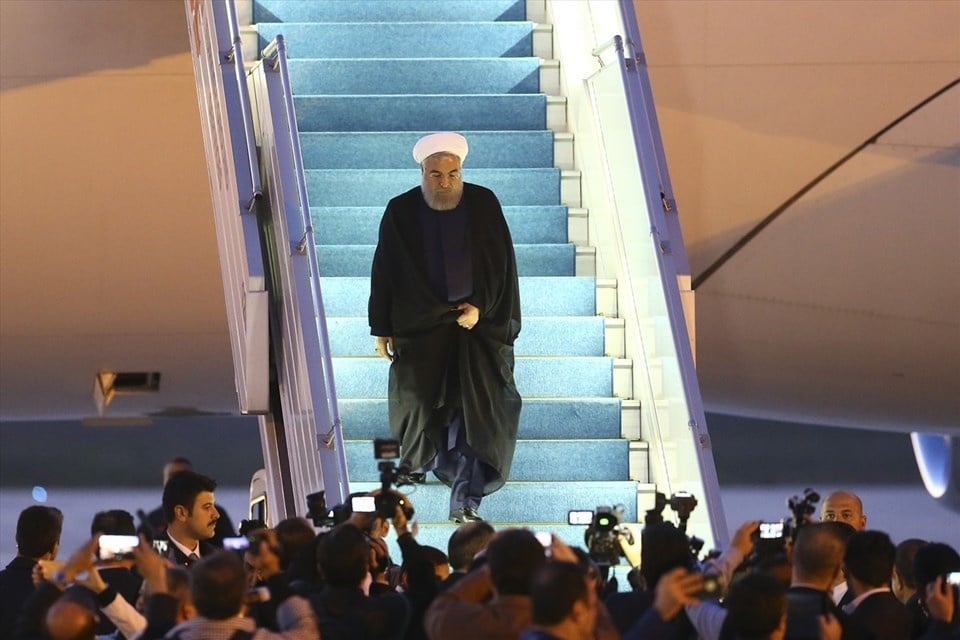Iran President Hassan Rouhani arrives in Ankara, Turkey, December 19, 2018
Iran’s President Hassan Rouhani has embarked on a two-day visit to Turkey, hoping to distance Ankara from the US and to get Turkish support for the Islamic Republic’s embattled economy.
Rouhani declaimed to reporters at Tehran’s Mehrabad Airport before he departed on Wednesday:
Our neighbors…have explicitly told the US that the era of dictating policies to others is over and the US cannot decide for the region and relations between regional nations and countries from thousands of kilometers away.
Rouhani will make a specific appeal to the Erdoğan Government for economic links, as Iran faces comprehensive US sanctions, including on the energy and financial sectors, that were imposed on November 5.
The President said Turkey had taken a “firm” stance on the sanctions, and repeated the long-declared Iranian ambition of raising annual trade with Ankara from $10 billion to $30 billion.
In February 2011, Iran and Turkey signed an agreement of cooperation setting out the objective of increase from $10 billion to $30 billion by 2016. In January 2015, Iranian Speaker of Parliament Ali Larijani and Erdoğan restated the target.
But trade in 2017 between the two countries was still only $10.75 billion.
Economy and Syria on Agenda
Rouhani, who will co-chair the 5th Turkey-Iran High Level Cooperation Council meeting, said discussions will include the banking system, oil and gas, and transit. He also said “regional security and fighting terrorism” will be considered.
The context for Rouhani’s visit suddenly shifted as he arrived in Turkey, with Donald Trump’s order to remove all US troops from Syria — reportedly prompted, over the objection of US civilian and military officials, after Trump spoke with Turkish President Recep Tayyip Erdoğan last Friday.
Syria Daily, Dec 20: Trump Administration Withdrawing All US Forces
The President did not refer to Trump’s order. He spoke instead about this week’s meeting between the foreign ministers of Iran, Turkey, and Russia in Geneva, discussing a constitutional committee to help resolve Syria’s 93-month conflict.
The conference ended in uncertainty. The three countries announced agreement in principle on the 150-member committee, but UN envoy Staffan de Mistura said work remained to be done.
Diplomats said Russia had objected to five names among the 50 civil society and “independent” representatives. The Assad regime, propped up by Moscow, has blocked progress on the committee with its refusal to accept the representatives, who will sit alongside 50 from the regime and 50 from the opposition.
Syria Daily, Dec 19: Russia-Turkey-Iran Fail To Reach Agreement on Constitutional Committee
Rouhani maintained that the talks will restore security and bring the return of some of Syria’s 6.6 million refugees back to the country.

